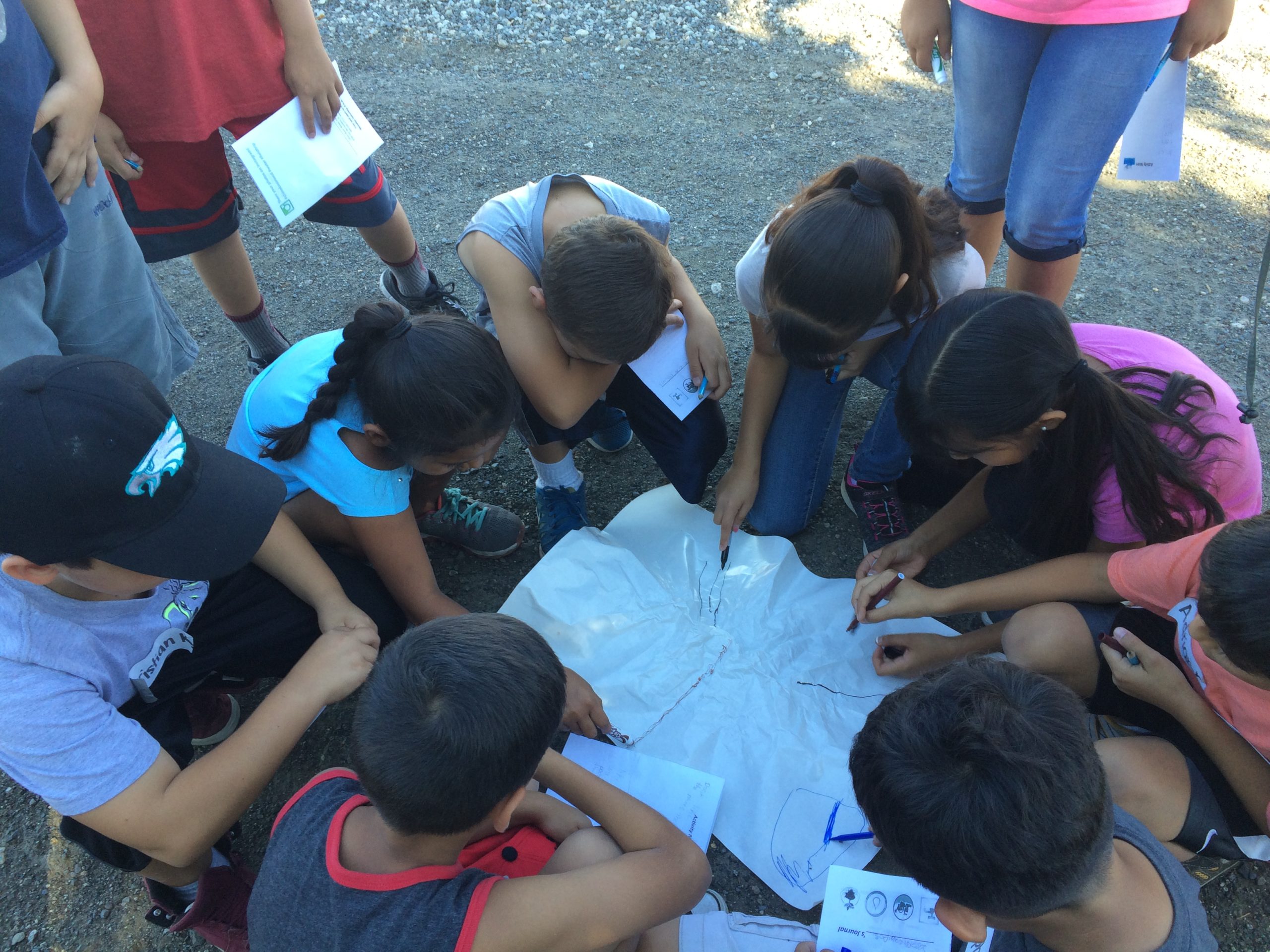Creating a new generation of environmental stewards through elementary school education and meaningful partnerships with community.
 Elementary school children learning the basics of topography in their watershed on a field trip led by the Robert Redford Conservancy!
Elementary school children learning the basics of topography in their watershed on a field trip led by the Robert Redford Conservancy!
Expanding LEEP
Since 1996, Pitzer College has worked to bring environmental education programs to local school-aged children through LEEP—Leadership in Environmental Education Partnership. In this program, Pitzer students and native elders teach ecological literacy to elementary school children from diverse socio-economic and racial/ethnic backgrounds. For many of these children, it has been their first opportunity to meaningfully connect directly with nature. In over two decades, LEEP has inspired over 3,000 elementary school graduates, a significant number of whom are now old enough to be passing down their appreciation for ecological well-being to their own children.
In Fall 2020, with generous funding from the Dean Witter Foundation, the RRC hired Environmental Education Curriculum Specialist Samantha Morales Johnson, who expanded the curriculum to include new lessons with both in person and virtual components, as well as engaging in outreach to under-resourced students in Pomona and Montclair. We hope to bring our educational efforts to bear on conservation in the broader region.
Each lesson is compiled of about 8 30-minute sections totaling four hours per lesson, each lesson also has an online alternative that reflects what activity would happen in person in respect to online teaching guidelines created during the COVID-19 pandemic. The curriculum is mostly class based, with a plethora of online activities like mini-quizzes, interactive slides, and online escape rooms. Students and teachers working with Pitzer college will learn about our sagebrush environment extensively before spending a day or two at the Bernard Field Station. Lessons that align with California State Standards are made for all ages but align with certain science standards of certain grade levels, primarily 4th and 5th grade. At the end of the program, students will hopefully have a comprehensive notebook of field sketches and completed activities that they will be able to use as a keepsake and reference to their time learning about their local environment.

These lessons on nature, paired with environmentalism, have the potential to turn all participants into environmentalists, both the students and teachers alike. We hope these lessons leave you with more knowledge, some good memories, and a drive to learn more about the beautiful ecosystems of Southern California.

Try one of these lessons yourself in this online interactive Wildfire Escape Room!
To deepen and institutionalize Pitzer’s focus on Environmental Youth Education, with LEEP at its core, K-12 outreach is now under the umbrella of the Robert Redford Conservancy.
Robert Redford Conservancy Environmental Education fellows provided a tour to CSULA Trio Upward Bound Program.